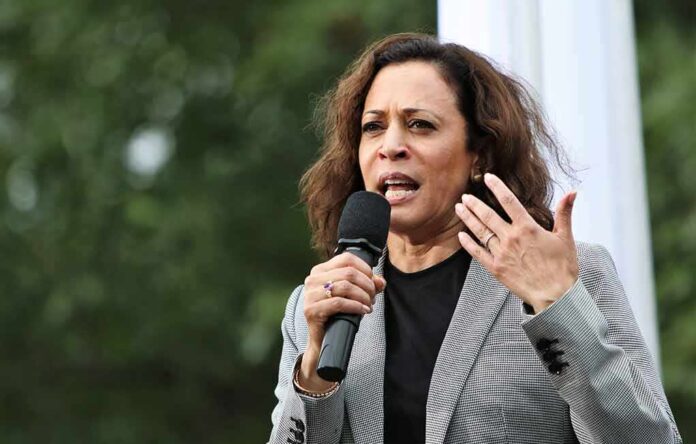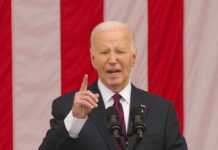Vice President Kamala Harris shifts her campaign strategy, calling for unity after previously labeling Trump a fascist.
At a Glance
- Harris emphasizes unity and a future of freedom in her latest campaign rallies
- The VP refrains from mentioning Trump or using derogatory terms
- Trump’s campaign criticizes Harris’s message as divisive
- Democrats express concerns about Harris’s focus on Trump’s rhetoric
- Harris plans to continue campaigning in key battleground states
Harris’s New Unity Message
Vice President Kamala Harris is concluding her election campaign with a surprising shift towards unity, despite her previous characterization of former President Donald Trump as a “fascist” and a threat to democracy. In a recent rally in Michigan, Harris emphasized her campaign’s focus on a future with freedom, opportunity, and dignity for all Americans, notably refraining from mentioning Trump or using derogatory terms to describe him.
This strategic pivot aims to inspire voter turnout for a greater cause, urging voters to “turn the page and write the next chapter of our history.” However, the abrupt change in tone may seem insincere to swing state voters after a divisive campaign season.
Trump Campaign’s Response
The Trump campaign has not remained silent on Harris’s new approach. They have criticized her closing message as divisive, focusing on what they perceive as negative rhetoric against Trump and his supporters.
“Their entire closing pitch is ‘Donald Trump is bad and the people who vote for him are bad too,'” said Karoline Leavitt, adding, “It’s the most divisive rhetoric and closing argument from any campaign ever.”
This response highlights the ongoing tension between the two campaigns as they enter the final stretch before Election Day.
Concerns Among Democrats
While Harris is attempting to shift the narrative, some Democrats express concerns about her campaign strategy. In Michigan, a crucial battleground state, local Democrats worry that focusing on Trump’s authoritarian rhetoric may not resonate with voters who are more concerned about economic issues.
“It doesn’t play well in communities that are struggling to make ends meet, and that’s the problem. They’re talking to the wrong people. We can’t keep campaigning on modes of fear,” stated Sherry Gay-Dagnogo, highlighting the disconnect between Harris’s message and voter priorities.
Kamala Harris Calls for Unity After Smearing Trump as a ‘Fascist,’ Threat to Democracyhttps://t.co/pQYJ1Mz2NK
— “ TRUTH Speaker” (@FreeAdvice767) November 4, 2024
Some activists believe Harris should focus more on abortion rights, which is seen as her strongest issue. There’s a perceived need for Harris to balance addressing Trump’s potential dangers with presenting her own policy agenda.
Campaign Strategies in the Final Stretch
As the election approaches, both campaigns are intensifying their efforts. Harris is scheduled to continue campaigning in Pennsylvania, with events planned in Scranton, Allentown, Pittsburgh, and Philadelphia. Meanwhile, Trump plans to hold four rallies on the final day before Election Day in North Carolina, Pennsylvania, and Michigan.
Harris’s campaign is reportedly shifting focus back to abortion and the economy, with recent rallies emphasizing these issues. She has been highlighting her record on domestic manufacturing and attacking Trump for his stance on Biden’s economic policies.
“I don’t see us moving anyone over with that message. It’s risky to go negative, because sometimes independents don’t like negativity,” remarked Karen Lancendorfer, pointing out the potential drawbacks of Harris’s previous strategy.
As both campaigns make their final push, the contrasting strategies of Harris and Trump present voters with distinct choices for the nation’s future leadership.
Sources:
- Kamala Harris Calls for Unity After Smearing Trump as a ‘Fascist,’ Threat to Democracy
- Harris Is Pounding Trump On facism. Some Dems think that’s a mistake











